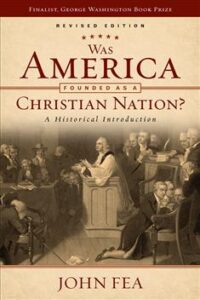I received an e-mail recently from Westminster John Knox Press (WJK) of Louisville, Kentucky, informing me of a 50 percent discount with the promo code WJK21 until the end of the year. In addition, shipping is free on all orders over $50. The only problem is that there is not much of value put out by this publisher. And not wonder, for WJK is “the academic and trade imprint of the Presbyterian Publishing Corporation (PPC)” The PPC is the publishing agency of the Presbyterian Church (USA), the largest and most progressive Presbyterian denomination. Visit one of these churches and you might find not only a woman pastor, but a gay or lesbian pastor.
According to WJK, “Books and resources published under the WJK imprint cover the spectrum of religious thought and represent the work of scholarly and popular authors of many different religious and theological affiliations. WJK publishes approximately 60 new books and other resources each year and manages a backlist of more than 1,800 titles that are sold throughout the world.”
WJK was formed in 1988 by a merger between Westminster Press of Philadelphia and John Knox Press of Richmond and Atlanta. The definitive English edition of Calvin’s Institutes was published by Westminster Press in 1960 as part of the Library of Christian Classics. This is, I think, the only book published by Westminster Press or John Knox Press that I still own. Years ago, when I still had over 500 books related to Calvinism, I had some other titles published by these publishers in addition to Reformed books published by WJK, like The Writings of John Calvin: An Introductory Guide, expanded ed. (2008), by Wulfert de Greef, which I highly recommend.
I used to own an earlier edition of The Letters of Paul: Conversations in Context (6th ed., 2015), by Calvin J. Roetzel. It is an okay book. I own and have read the following recent books published by WJK: The Genesis of Good and Evil: The Fall(out) and Original Sin in the Bible (2019), by Mark S. Smith; Ancient Jewish and Christian Scriptures: New Developments in Canon Controversy (2020), by John J. Collins, Craig A. Evans, and Lee Martin McDonald. I can only recommend the latter book. I own Forgotten Scriptures: The Selection and Rejection of Early Religious Writings (2009), by Lee Martin McDonald, and Paul and Perseverance: Staying in and Falling Away (1991), by Judith M. Gundry Volf, but I have only briefly looked through them. I have the reference book Pauline Parallels: A Comprehensive Guide (2009), by Walter T. Wilson, which I recommend and will mention in a future post. WJK publishes a commentary on the New Testament as part of The New Testament Library. I have the volume on Galatians, for reasons I have already explained. It is one of the better volumes in the series, some of which are written by women. I would like to see the new volume on Matthew by R. Alan Culpepper, but it is not yet available. Nothing in the Interpretation or Belief commentary series is worth reading. For information on baptism and the Lord’s supper from a Reformed perspective, but not a scriptural perspective, I recommend for research two books by John W. Riggs in the  Columbia Series in Reformed Theology: Baptism in the Reformed Tradition: An Historical and Practical Theology (2002) and The Lord’s Supper in the Reformed Tradition: An Essay on the Mystical True Presence (2015). One WJK title that I can highly recommend is Was America Founded as a Christian Nation? A Historical Introduction, rev. ed. (2016), by John Fea.
Columbia Series in Reformed Theology: Baptism in the Reformed Tradition: An Historical and Practical Theology (2002) and The Lord’s Supper in the Reformed Tradition: An Essay on the Mystical True Presence (2015). One WJK title that I can highly recommend is Was America Founded as a Christian Nation? A Historical Introduction, rev. ed. (2016), by John Fea.
Is there anything else published by WJK that I can recommend? Certainly not the new book God and Guns: The Bible against American Gun Culture, edited by C.L. Crouch and Christopher B. Hays. Certainly not these two pro-abortion books: Abortion and the Christian Tradition: A Pro-choice Theological Ethic (2019), by Margaret D. Kamitsuka; Pro-Choice and Christian: Reconciling Faith, Politics, and Justice (2017), by Kira Schlesinger. Certainly not Unashamed: A Coming-Out Guide for LGBTQ Christians (2019), by Amber Cantorna. Certainly not UnClobber: Rethinking Our Misuse of the Bible on Homosexuality (2016, expanded ed. 2022), by Colby Martin.
If you ever receive an e-mail from WKJ, you can probably delete it. You are not missing anything.